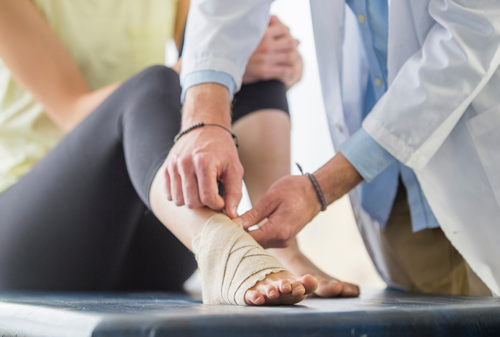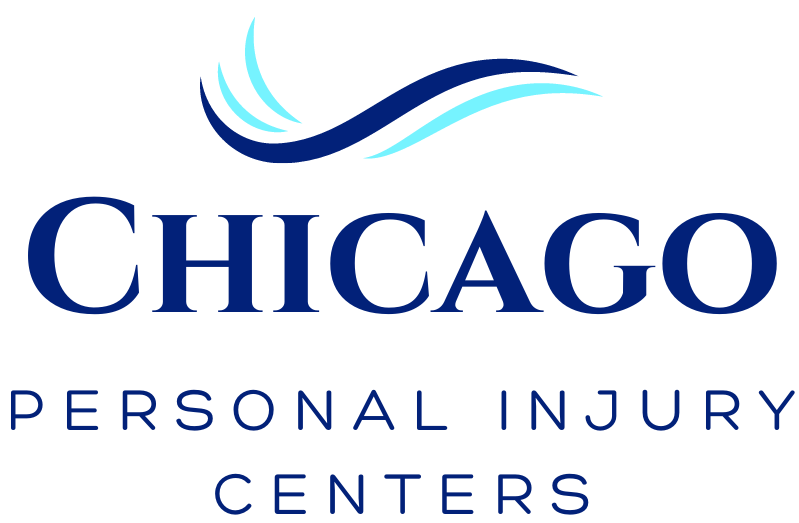Accidents, from car accidents and workplace incidents to slips and falls, can occur in an instant, leaving behind anything from minor bruises to serious injuries. Each injury is unique, and the treatment needed can vary depending on its severity.
One of the most important questions that arises after an accident is whether surgical procedures are needed to treat those injuries. Choosing to undergo surgery can be overwhelming, as it involves weighing the risks, recovery time, and possible long-term effects.
At Chicago Personal Injury Centers in Chicago, our skilled and experienced team is here to offer complete healthcare services for you and your family, including referrals to trusted specialists when necessary. We’re dedicated to helping you manage chronic pain, address recurring medical issues, and support you in starting and maintaining a healthy lifestyle.
Common Personal Injuries That May Require Surgical Procedures
When dealing with personal injuries, certain conditions are severe enough that surgery becomes the best or only option for effective recovery and long-term health.
Fractures and Broken Bones
While many fractures heal with immobilization, complex fractures—such as compound or displaced fractures—may require surgical intervention to properly align and stabilize the bones. Surgery ensures the bones heal correctly, preventing long-term complications like deformity or impaired function.
Herniated Discs
Herniated discs can often be managed with non-invasive treatments, such as physical therapy or injections. However, in cases where the disc compresses nerves and causes severe pain, numbness, or weakness, surgery might be the best option to relieve the pressure and restore function.
Torn Ligaments and Tendons
Injuries like a torn ACL or rotator cuff may sometimes heal with physical therapy, but in severe cases, surgery is required to reattach or repair the torn ligament or tendon. These procedures help restore strength and stability to the affected joint, preventing further injury.
Spinal Cord Injuries
For spinal cord injuries, surgery is sometimes necessary to prevent serious complications, such as paralysis. Spinal surgeries can stabilize the spine, decompress nerves, or repair damaged tissue, depending on the nature of the injury.
Signs That You May Need Surgery
Not all injuries require surgery, but there are certain indicators that a surgical procedure may be the best option:
- Persistent, unmanageable pain: If conservative treatments like medication or physical therapy fail to alleviate pain, surgery might be necessary.
- Loss of mobility or function: Significant reductions in movement or function in the injured area could indicate structural damage that requires surgical correction.
- Imaging results: X-rays, MRIs, or CT scans that show severe damage, such as bone misalignment or nerve compression, can signal that surgery is the best course of action.
- Worsening symptoms: If your condition continues to deteriorate despite treatment, including increasing pain, swelling, numbness, or weakness, it may be time to consider surgical intervention.
Alternatives to Surgical Procedures: When Conservative Treatment Works
While surgery can be necessary for some injuries, many cases can be effectively treated with non-invasive alternatives that promote healing and recovery without the need for surgery.
Physical Therapy
In many cases, rehabilitation exercises prescribed by a physical therapist can restore movement and strength without the need for surgical procedures. Physical therapy is effective for injuries such as sprains, strains, and certain fractures.
Chiropractic Care
For certain conditions like back pain or whiplash, chiropractic adjustments may help relieve pain and improve spinal alignment without invasive procedures.
Medication
Over-the-counter or prescription anti-inflammatory medications can reduce swelling and pain while allowing your body to heal naturally. These medications are often used in conjunction with physical therapy for optimal results.
Injections
Injections can provide significant relief for certain personal injuries, offering a less invasive option compared to surgery. They are commonly used to manage pain, reduce inflammation, and improve mobility, especially in cases of joint injuries, soft tissue damage, and back pain.
Rest and Lifestyle Modifications
Sometimes, rest, proper ergonomics, and lifestyle changes—such as using supportive equipment—can provide relief and give your body the time it needs to heal without surgical intervention.
Risks and Benefits of Surgery
Before deciding on surgery, it’s important to weigh the potential benefits, such as pain relief and restored function, against the possible risks and complications involved.
Benefits of Surgery
Surgery can restore mobility and alleviate chronic pain, offering long-term relief. In some cases, surgery is necessary to stabilize fractures or correct herniated discs before they worsen. While surgery requires downtime, it can expedite recovery for injuries that would otherwise heal improperly or too slowly with conservative treatment.
Risks of Surgery
All surgeries carry risks such as infection, blood clots, and anesthesia complications. Some surgical procedures require extended periods of rehabilitation, which can be physically and emotionally taxing.
There’s always a possibility that a surgical procedure may not fully resolve the issue or that additional procedures could be necessary. Surgery can be costly, and it’s important to consider the financial implications, including time off work.
Recovery and Rehabilitation Post-Surgery
After a surgical procedure, your recovery will depend on the type of injury and procedure performed. Post-surgical physical therapy is vital for regaining strength and mobility, especially after ligament repair or spinal surgery.
Minor surgeries, such as a simple fracture repair, might require only a few weeks of recovery, while more complex procedures, like spinal surgeries, can take several months to fully heal. Regular check-ups with your healthcare provider are important to ensure proper healing and address any complications early.
Consulting with Your Medical Team
Before opting for a surgical procedure, it’s important to consult with your healthcare team and, if necessary, seek a second opinion. Your doctor will evaluate your injury, consider your overall health, and review imaging results to recommend the best course of action.
It’s wise to consult with multiple specialists to confirm that a surgical procedure is necessary and that all other options have been explored. When discussing surgery, ask your doctor about recovery expectations, potential risks, and alternatives. Understanding the full picture will help you make an informed decision.
Wondering if a Surgical Procedure is Necessary After a Personal Injury? Talk to a Specialist Today
When recovering from a personal injury, knowing when surgery is necessary and when alternative treatments might suffice is vital. Surgery can provide relief and restore function, but it also comes with its own risks. You should explore all your options and consult with experienced medical professionals, to make the best decision for your health and recovery.
At Chicago Personal Injury Centers in Chicago, our team is here to help you navigate your treatment options. Contact us today at (773) 482-5800 to discuss the best approach to your recovery, whether through surgery or other effective treatments.


